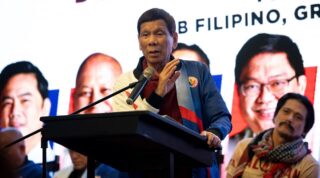Political upheavals, fueled by sentiments of discontent and ideological differences, defined the revolutions of the late 1960s and early 1970s. Led by students and the masses who were fed up with the ruling elites, movements gave rise to states that embraced socialist values and ideals. Liberal democracy soon found itself at a crossroads and, thus, the difficult challenge was how human freedom and equality could be finally reconciled in a world that is bitterly characterized by class and social divide.
The next era saw the rise of globalization and the massive influence of greater connectivity on the part of nation-states. Yet, the West still dominated the capital-intensive and consumerist type of culture that shaped the extravagant lifestyles of the people in affluent countries at the expense of the global poor. Corporate America controlled the world. As the threat of the Cold War subsided, Wall Street and neoliberal policies dictated the direction of global commerce and trade. With the collapse of the USSR and the fall of the Berlin Wall, the hegemonic nature of geopolitics saw the United States as the remaining superpower.
Then the age of information technology arrived. Thomas Friedman described it as the flat-world phenomenon. With the dot.com era, the geographic distance that divided societies was connected by fiber optic cables buried deep underwater. Knowledge linked not only human beings but societies as well. The internet was seen as a tool which would finally narrow the gap between wealthy states and the impoverished countries in the Third World. But with profit and greed dictating the tempo, the economy built on the internet soon collapsed.
The advent of terror now characterizes these changing times. The 9/11 attacks in the United States, perpetrated by the scion of a wealthy Saudi contractor, changed the world. Paranoia followed 9/11, and suddenly the whole world has become more conscious of security and the protection of national interest. But this attitude has simply opened a more disturbing reality. The clash of cultures seems more realistic than before. It would appear that Samuel Huntington may have rightly predicted the way human civilization is unraveling.
Liberalism, indeed, has to confront the challenge of culture and religion. In the end, pluralism was set to determine the way nations were programmed to move forward. Institutional policies will have to be more inclusive in order to work out a consensus. The cure for enmity is the recognition of difference. Still, tribalism has been too clever a monster for democracy to slay. As a result, the Arab Spring did not really change the political fortunes of autocratic Arab states. Rather, it metamorphosed into the Syrian civil war that has claimed 300,000 innocent lives.
Societies now observe the rise of populist regimes and a kind of radicalism that is grounded in the politics called by Adele Webb as a “resurgent nationalism.” All too fed up by the inability of traditional elites to deliver on their promises, people are suddenly a witness to an emerging phenomenon that has ripped traditional and historical alliances apart. Still, it is too early to be able to arrogate its merits. What is clear, however, is that elite democracy has lost its luster or relevance, to say the least, though the danger that accompanies populist revolts is obvious and not really difficult to describe.
But societies should stop spilling blood over disagreements in terms of how wealth is to be divided, although dismantling structural injustices and unfair practices are a precondition to the realization of the good life. Asad Zaman says that instead of “utilizing humans to produce wealth, we have to utilize wealth to produce human capabilities.” The next revolution should no longer be about what is so wrong with the world, but the opening of the paths to human freedom and development.
* * *
Christopher Ryan Maboloc, PhD, teaches philosophy at Ateneo de Davao University.


